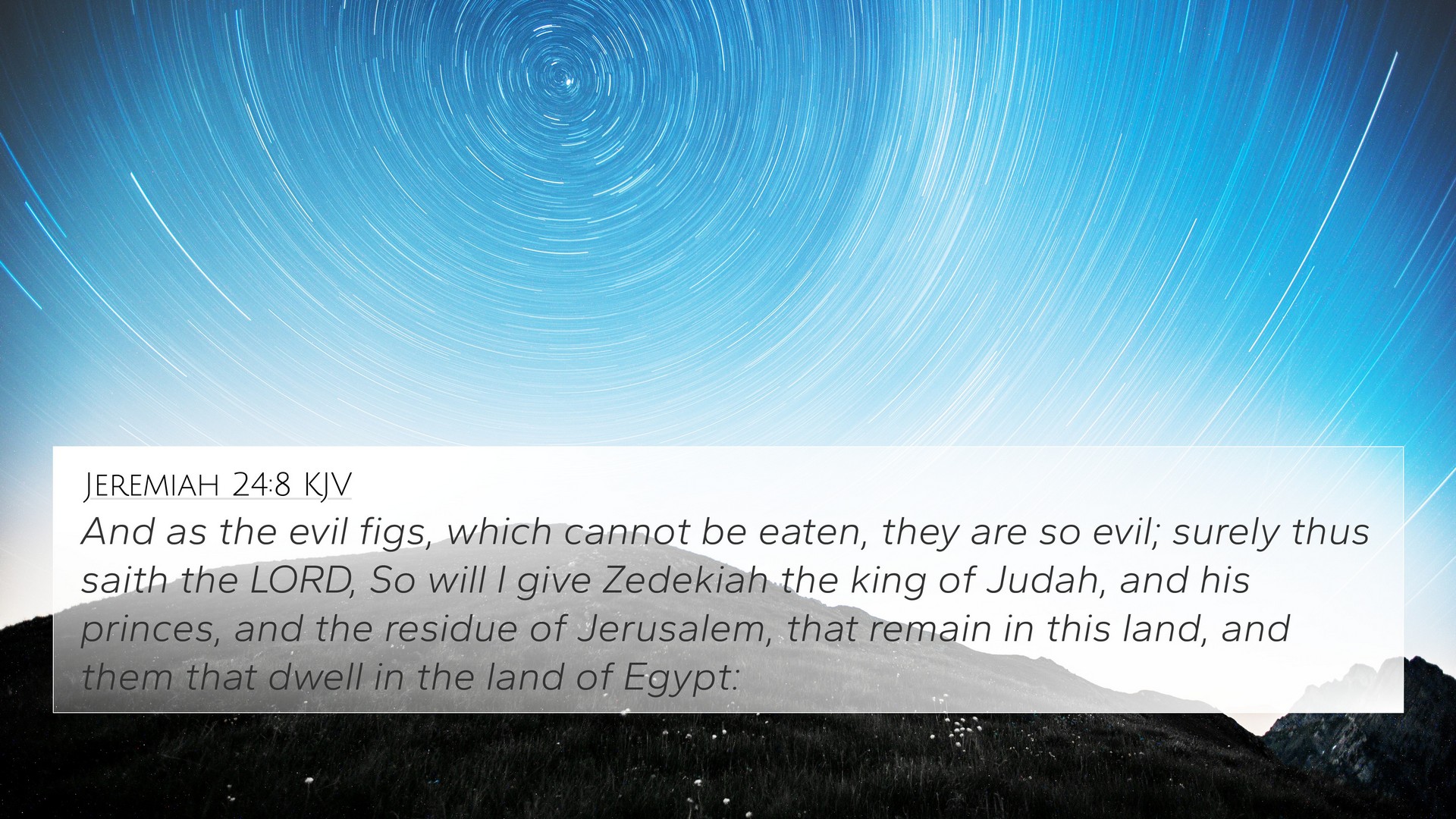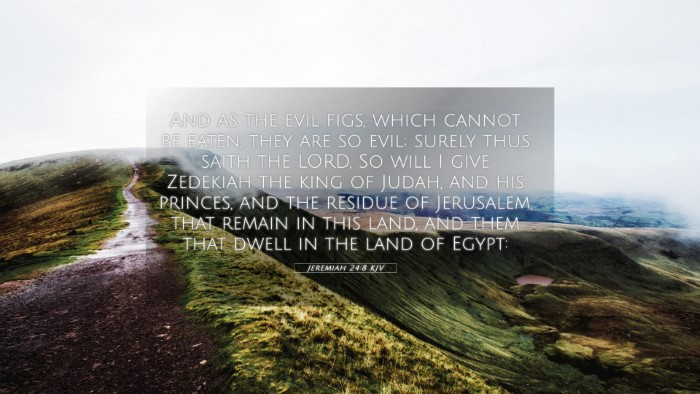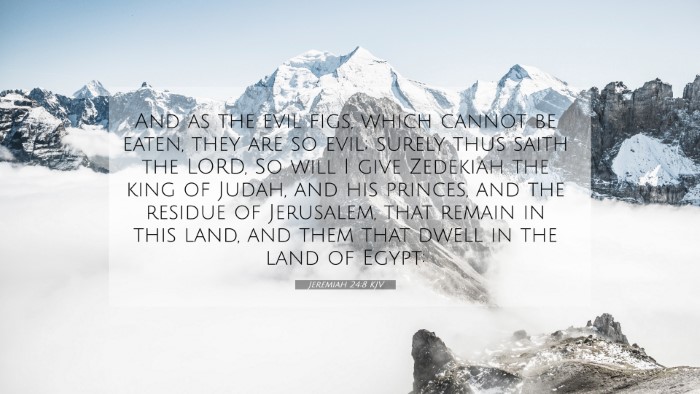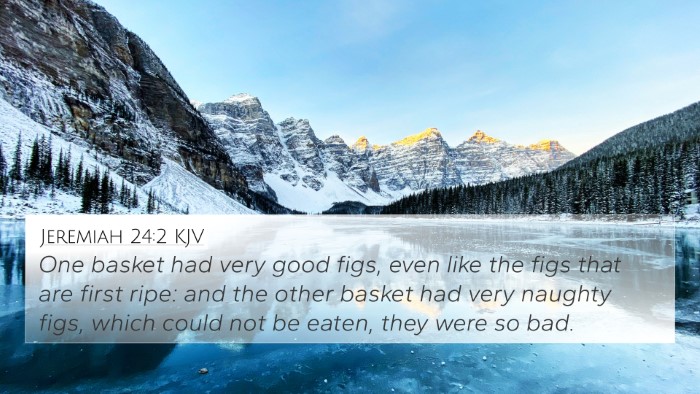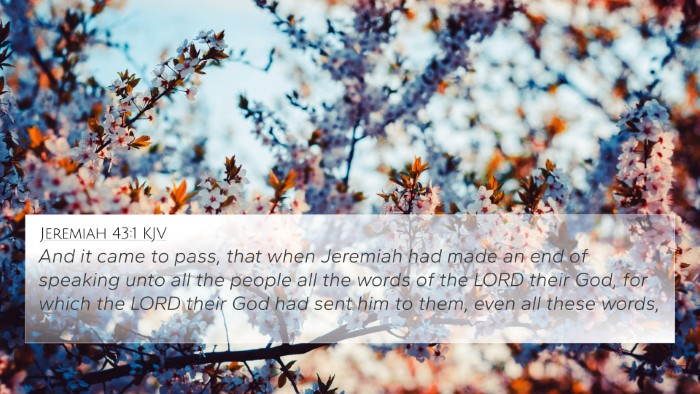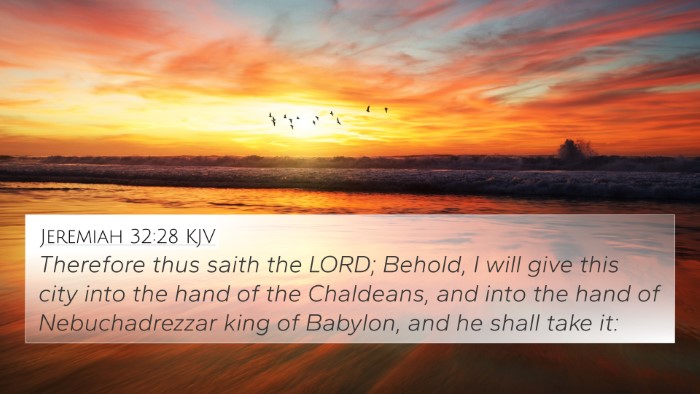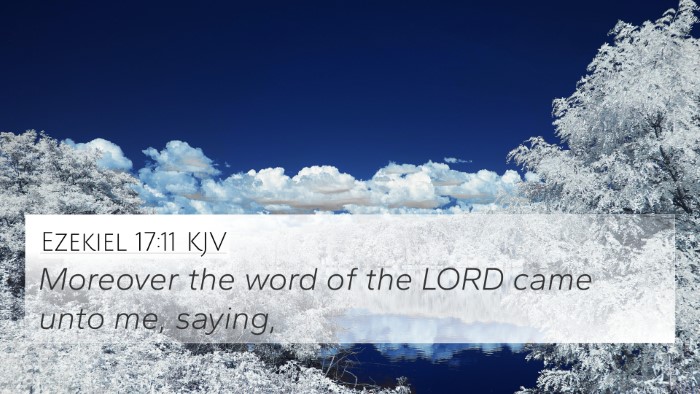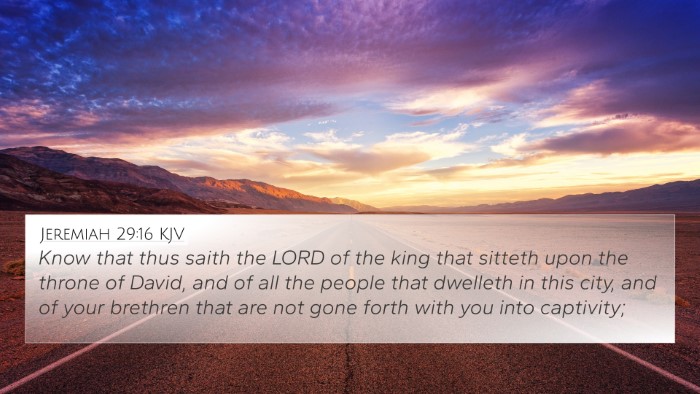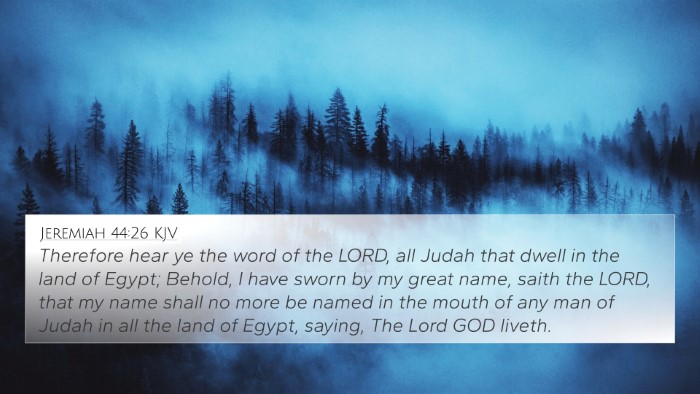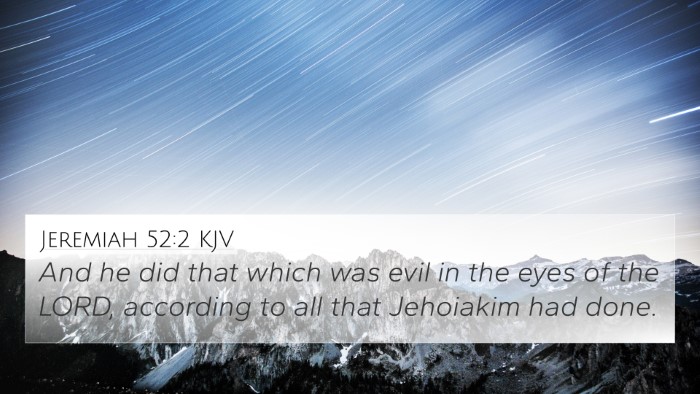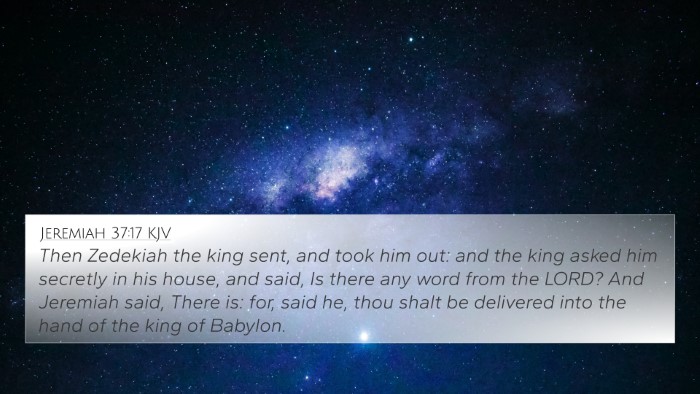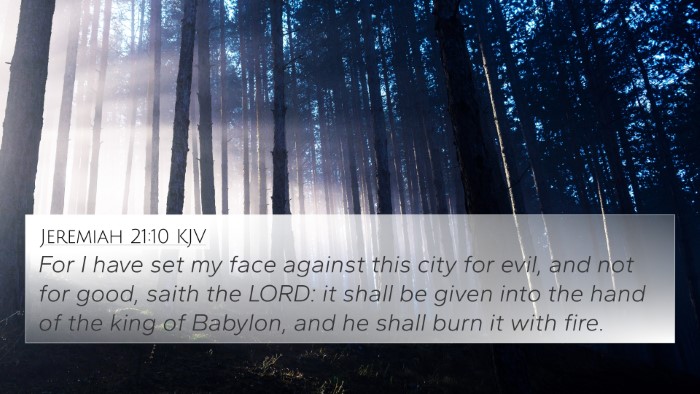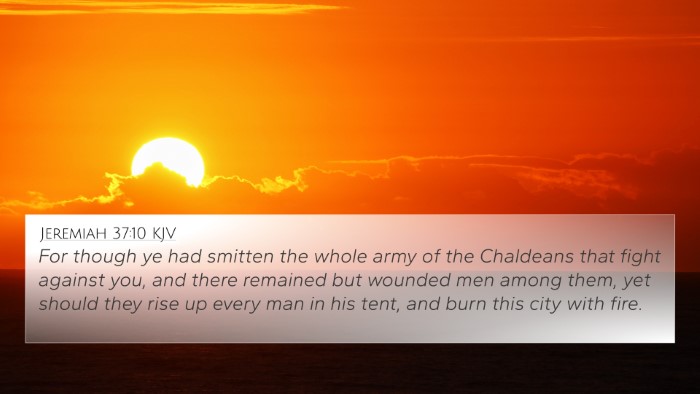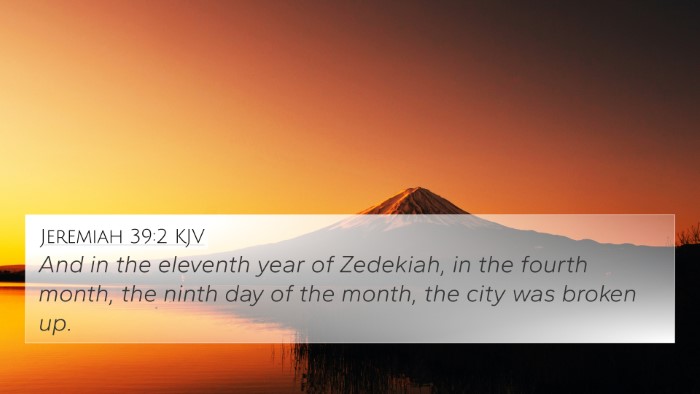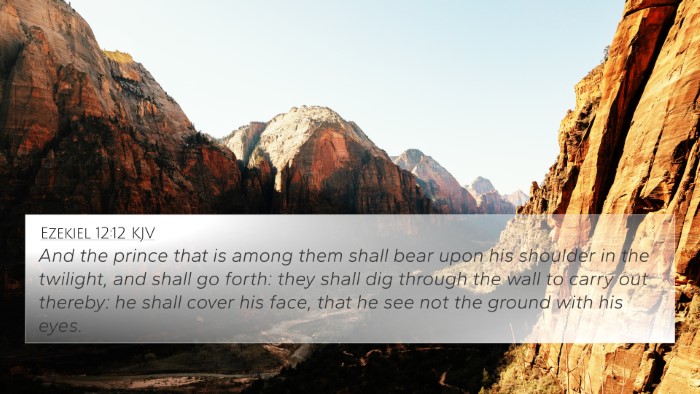Understanding Jeremiah 24:8
Jeremiah 24:8 states:
"And as the evil figs, which cannot be eaten, they are so evil; surely thus saith the Lord, So will I give Zedekiah the king of Judah, and his princes, and the residue of Jerusalem, that remain in this land, and them that dwell in the land of Egypt."
This verse is part of a significant prophetic declaration made by Jeremiah during a tumultuous time in Israel's history. In the context of the wider chapter, Jeremiah is illustrating God's judgment and mercy through the symbolism of good and bad figs.
Thematic Overview
Jeremiah uses the metaphor of figs to represent the fate of the people of Judah. The good figs symbolize those who would be preserved and returned, while the evil figs represent those who will face judgment and destruction. This duality reflects God's justice and mercy.
Commentary Insights
Below are insights derived from various public domain commentaries:
-
Matthew Henry:
Henry emphasizes the distinction between the good and evil figs as representations of God's people. The good figs symbolize those who remain faithful and will be restored, while the evil figs represent those who reject God's ways. His commentary highlights the consequences of moral choices and the faithfulness of God's promises.
-
Albert Barnes:
Barnes elaborates on the historical context, noting that Zedekiah and the leaders of Judah faced dire consequences for their disobedience. He stresses the importance of collective accountability and the reality of divine judgment, explaining the harsh fate reserved for those who turn away from the Lord.
-
Adam Clarke:
Clarke focuses on the symbolic meaning of the figs. He explains that the good figs represent the exiles in Babylon, whom God promises to restore, and the evil figs symbolize those in Jerusalem who persist in wickedness. His commentary encourages readers to reflect on their relationship with God and their faithfulness to His covenant.
Bible Verse Cross-References
This verse connects with several important Scriptures that further illuminate its meaning. Here are some relevant cross-references:
- Jeremiah 24:4-7: Context of the good and evil figs, establishing God's message to His people.
- Isaiah 65:5: Reference to the evildoers who alienate themselves from God.
- Ezekiel 11:16: God's promise to be a sanctuary for the exiles in foreign lands.
- Lamentations 3:22-23: The faithfulness of the Lord, even amid judgment.
- John 15:6: Christ speaks of the necessity of remaining in Him to avoid judgment, drawing a parallel to the fate of the bad figs.
- Matthew 7:19: Jesus teaches about the consequences of bearing bad fruit, much like the evil figs.
- Romans 9:30-31: A discussion on how Israel pursued righteousness but failed to attain it, similar to the fate of the evil figs.
Thematic Bible Verse Connections
The themes of judgment, mercy, and restoration run throughout the Scriptures. Here are some connections between Bible verses that showcase these themes:
- Jeremiah 29:10-14: God's promise of restoration to His people after exile.
- Romans 11:1-2: Discussion on God not rejecting His people, reflecting the mercy found in Jeremiah 24.
- Isaiah 1:18: God's invitation to repentance and cleansing, relevant to the call for the people of Judah.
Conclusion
In summary, Jeremiah 24:8 serves as a potent reminder of God's justice and mercy. Through the metaphor of good and evil figs, readers are invited to reflect on their faithfulness and the consequences of their choices. As we engage in cross-referencing and comparative Bible verse analysis, we find deeper understanding and connections that enrich our faith journey.
This verse, along with its cross-references, provides valuable insights into the nature of God's dealings with His people. For those studying the Scriptures, utilizing tools for Bible cross-referencing and exploring thematic connections can greatly enhance comprehension.
